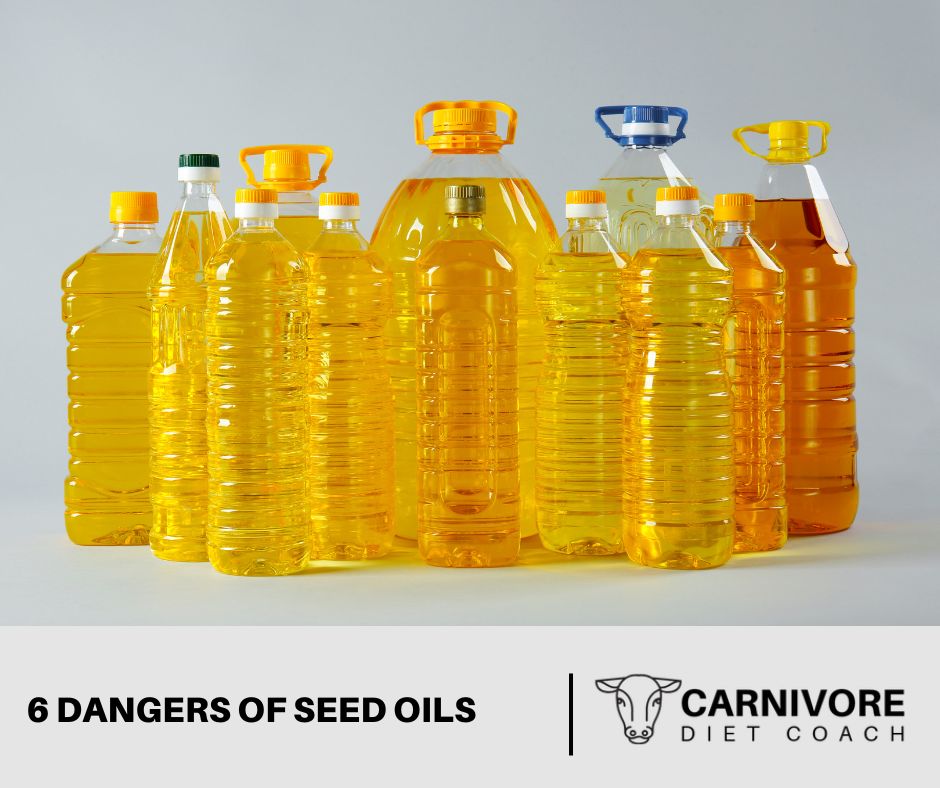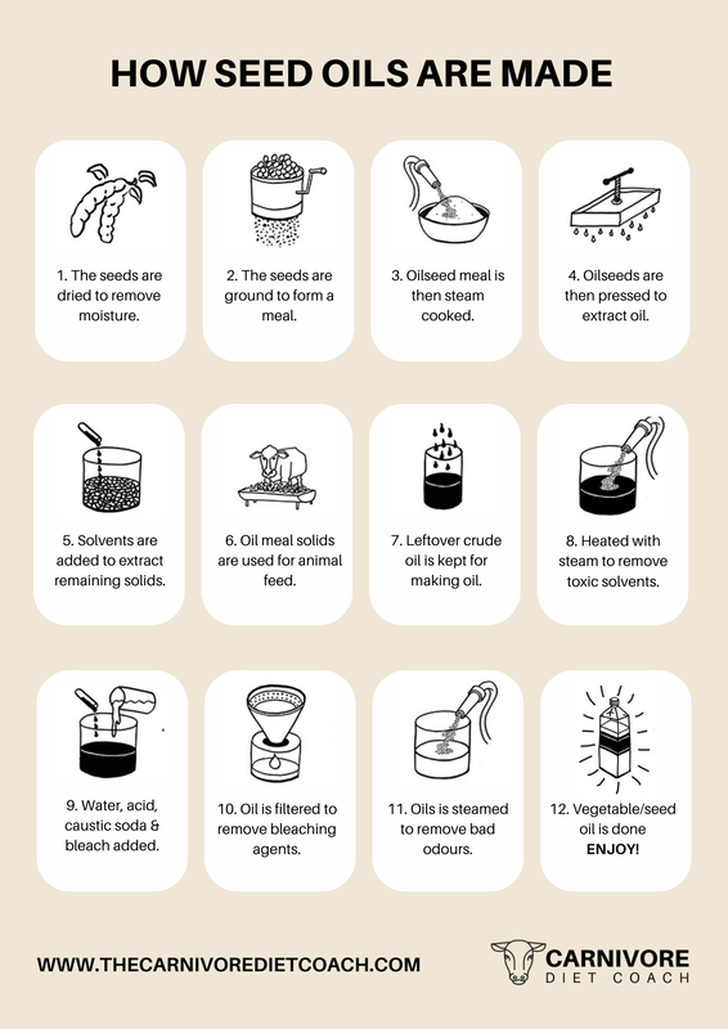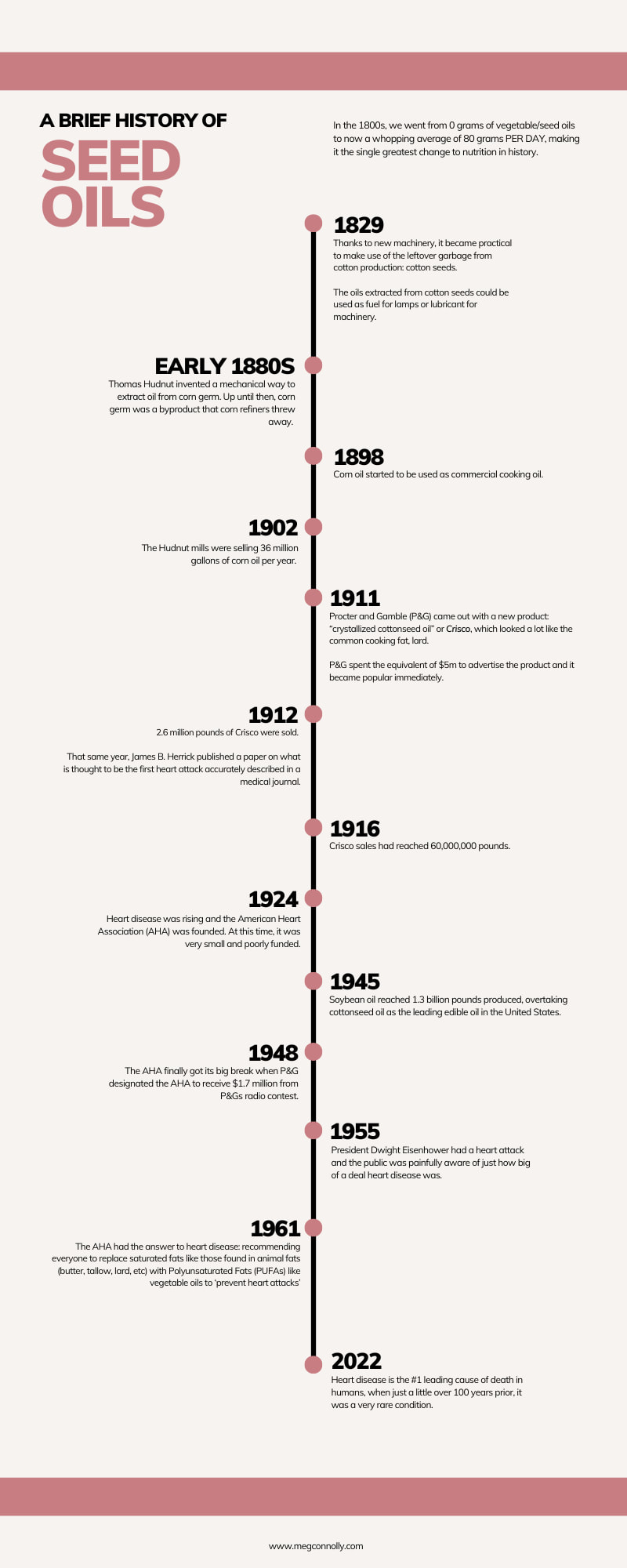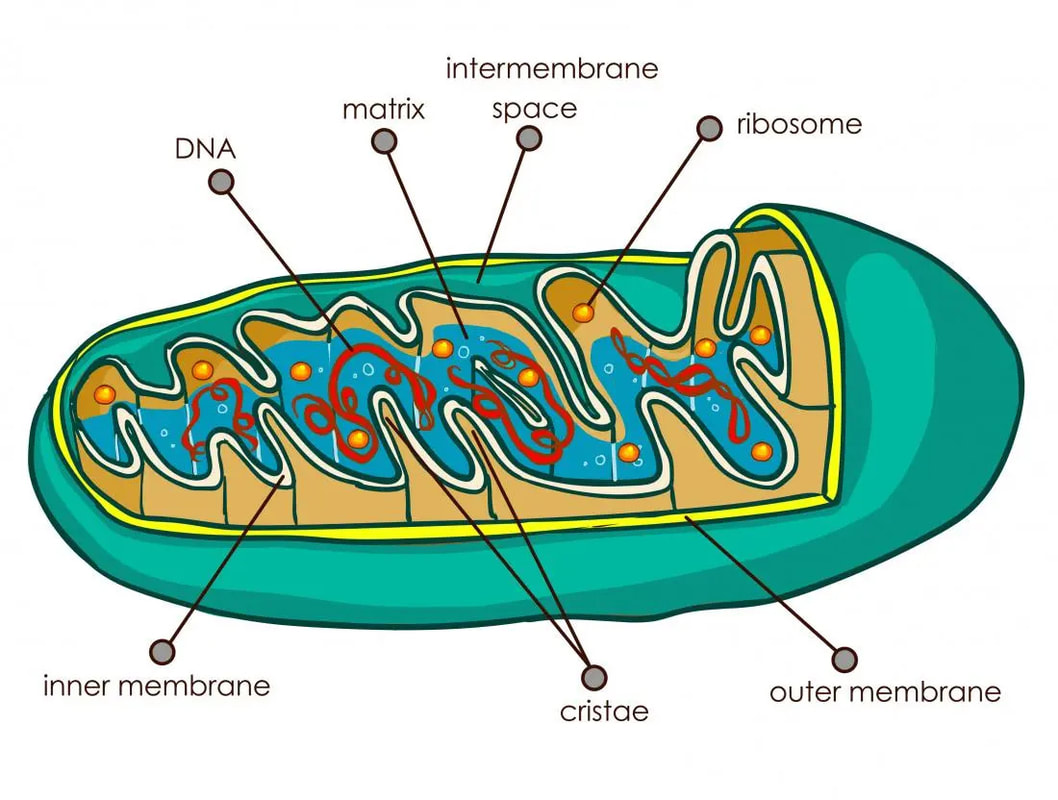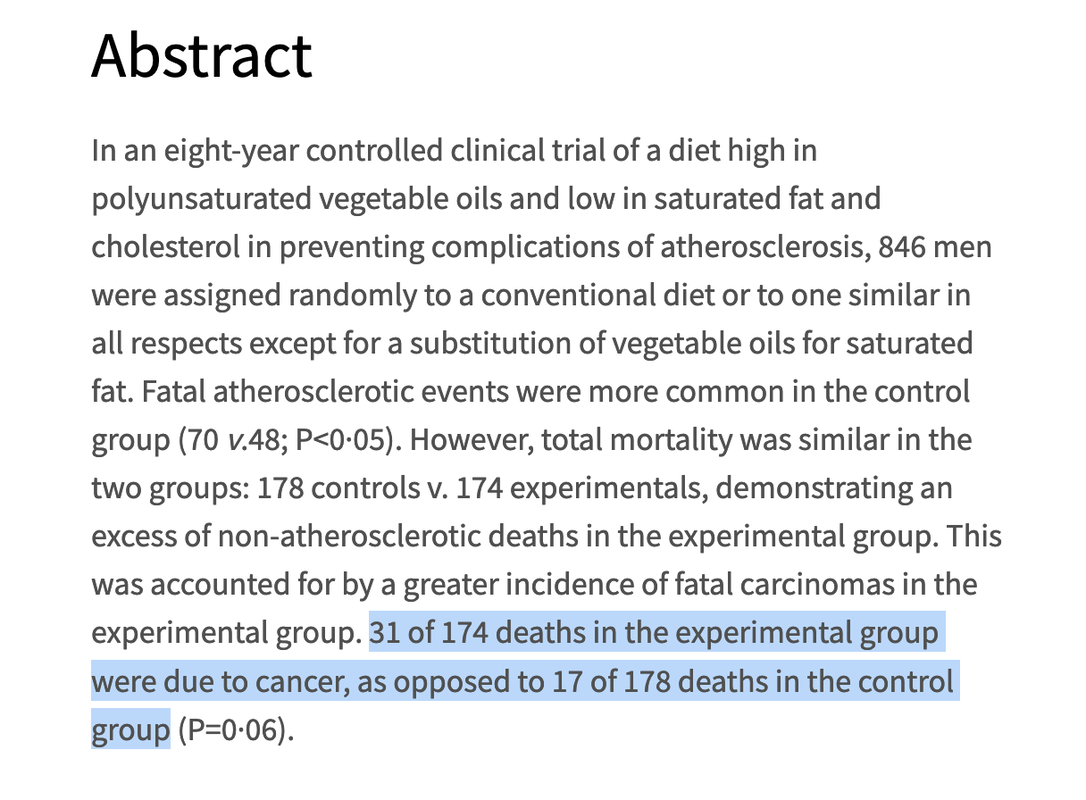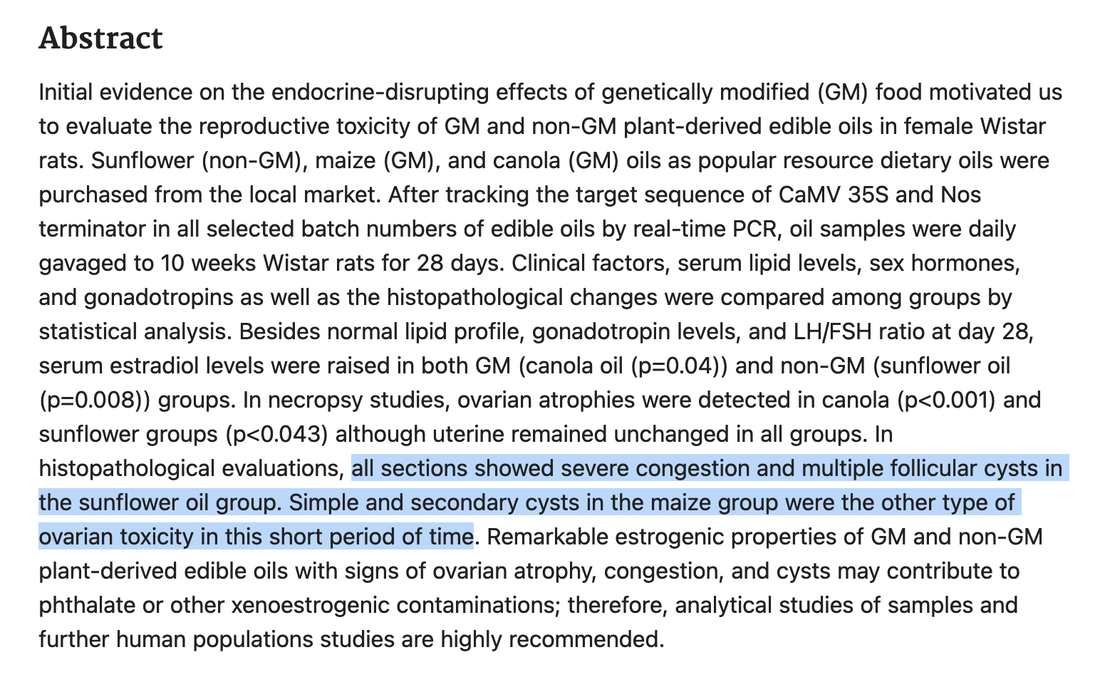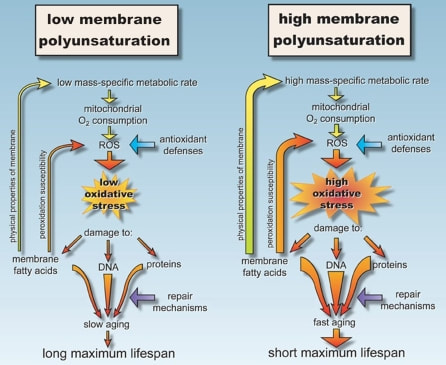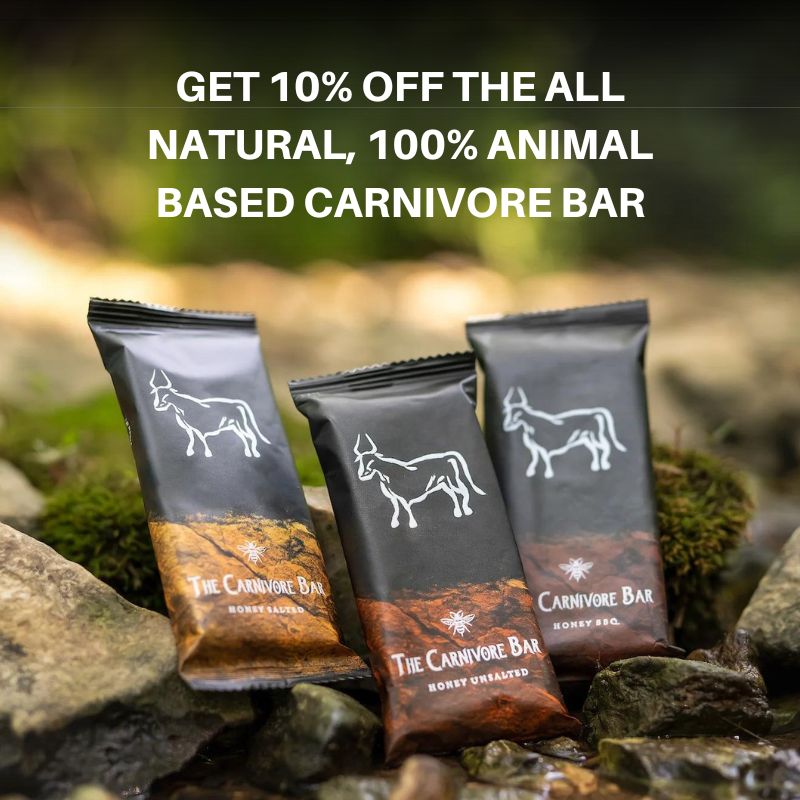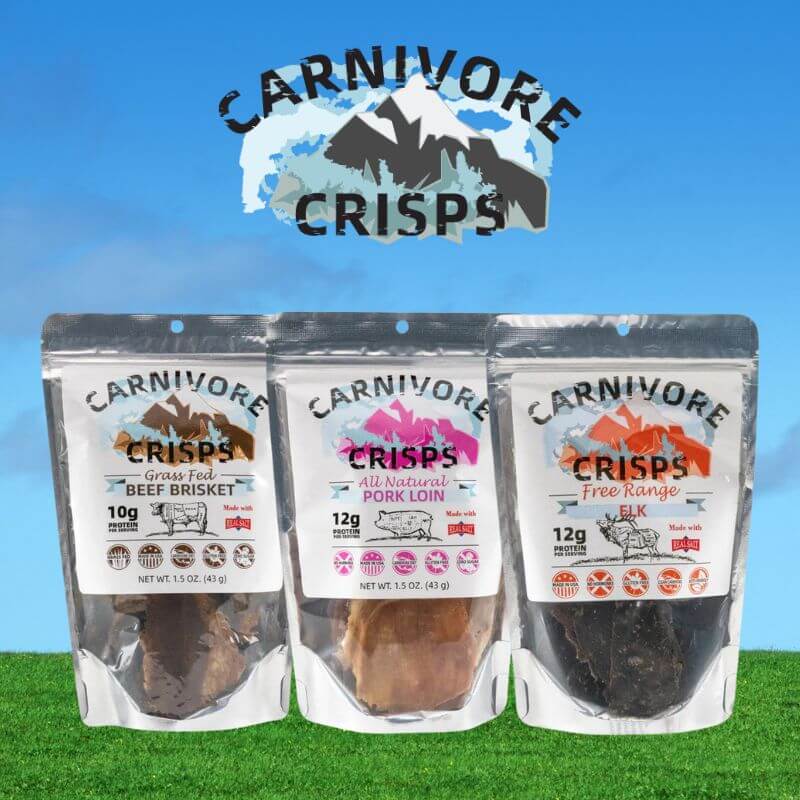|
THE COMPLETE
CARNIVORE DIET GUIDE
Learn how to lose weight, fix your gut and cure autoimmune symptoms with our free Carnivore Diet guide.
|
|
It can be hard to tell what's good for you and what isn't. Every food product you can pick up in the store has a long list of ingredients and picking everything apart to find out what's good for you and what isn't is a challenging task. Vegetable oils are no exception. Are seed oils bad for you or are they good for you? Let's find out. There are just as many articles bashing certain foods as many supporting them, so how do you figure out what is good or bad for you? It's almost impossible unless you develop a way of reading articles and understanding research papers. In this article, we will unpack everything there is to know about seed oils for you, so you can check the data and the evidence and understand how they might increase the risks of some health issues. What Are Seed Oils? You've likely heard of seed oils before, as it's probably in most of what you already incorporate into your diet whether or not you know about it. Seed oils are oils made from the seeds of plants. They're in most processed foods and are widely used by restaurants. The most common types are:
So, let's dig into how seed oils are made so we can more clearly understand the risks consuming them. How Are Seed Oils Made? If you're looking for the holy grail of processed foods, that can take the lowest form food, a waste product, and turn it into a highly profitable product, then you've found it. Here's how seed oils are made:
As you can tell, seed oils are far from what some people might consider a food. It's mainly a waste product, washed and cleaned with toxic chemicals. History of Vegetable Oils Over the past century, vegetable oil has not only appeared on the market, it has almost completely replaced the animal fats previously used for cooking. You likely use it when you heat your frying pan or oven. While at first, this might seem like a convenient change in the market, as it's something that's much more sustainable and cheaper to get your hands on, that might not be the case. Evidence suggests that vegetable and seed oils can harm your health in many ways. In the early 1900s, a new product hit the shelves called Crisco, which was "crystallized cottonseed oil" - which appeared to be similar in properties to lard. It was solid but easy to spread and was marketed for cakes, pastries and frying. Overall, it was positioned as an excellent substitute for the usual animal fat product that would have been commonly used in its place. Crisco wasn't just put on the shelves, however. It was later recommended as the newer, better, healthier alternative to promote heart health and the vegetable oil industry was born. The American Heart Association (AHA) has been telling Americans since 1965 to decrease the intake of saturated fats (SFA) and increase polyunsaturated fats (PUFAs). According to the current guidelines, 5-6% of the daily food intake should come from SFAs, and the rest of the fats (up to 20-35%) should come from PUFAs and MUFAs. Now, you can find vegetable and seed oils in your everyday food products: for example, breakfast cereal, potato chips, even some butter hybrids, vegetarian products and more! It's almost unavoidable, especially if you aren't aware of the dangers that this oil might bring you. Everyone has seed oil incorporated into their diet in some way. If you were going to avoid it, you'd have to put in much work to ensure you're removing it from your plate. Unlike animal fats, or saturated fats, which are said to be unhealthy, vegetable oils contain polyunsaturated fatty acids, also known as PUFAs and humanity's being advised to avoid the former and include more of the latter in their diet for the prevention of conditions like heart disease, diabetes, certain cancers or even Alzheimer's. So, our question is, why are these diseases skyrocketing while people have been following these recommendations for over half a century now? Is there a link between seed oils and modern diseases? Non-Communicable Chronic Diseases (NCDs), including Type 2 Diabetes/Insulin Resistance, obesity, cardiovascular diseases, and cancer, have been connected to mitochondrial damage. Research suggests that mitochondrial dysfunction may be the root of NCDs. However, further research is required to establish how this information can be used to develop treatments and therapeutic applications. But wait, what's a mithochondria and what it has to do with seed oils. Mitochondria are found in almost every cell of our body, producing energy to power the cell's biochemical reactions. Our organs and, therefore, our body is made up of cells. When these energy-producing organelles stop working correctly, your organs and, ultimately, your body will start experiencing issues. According to studies, mitochondrial dysfunction has been implicated in more than 40 known diseases. The data suggest that mitochondrial health is crucial for health and aging. Seed oils consist primarily of omega-6 polyunsaturated fatty acids and are often refined. These include sunflower, canola, cottonseed, rapeseed, grapeseed oil and more. The more purified they are, the worse their nutrient makeup is while being very high in calories. Some processes can even include bleaching and deodorizing when they produce these oils. Studies suggest that the extensive consumption of omega-6 PUFAs affects a range of mitochondrial functions negatively. In other words, seed oils can play an essential role in developing lifestyle diseases. Let's look at the 6 dangers of eating a diet rich in seed oils. How Seed Oils are impacting Your health Before we dive in, I've been studying the relationship between different foods and how they impact human health for over a decade, so while I've only highlighted a few studies below, there are many, many, many more to back up these claims. Too many to fit in a blog post. My advice to you is to do your own research. Learn how to read a research paper, how to check on the authors, whether they have competing interests and who funded the studies. Then have it and find out for yourself. #1. Seed Oils & Heart Disease Since the early 1900s (when vegetable oil hit the shelves), heart disease has skyrocketed to be one of the leading causes of death in Americans, and there are more signs that vegetable oil is having an impact. If the correlation that seems to be happening between seed oils and heart disease isn't convincing enough, it is also worth knowing that the AHA, who recommended seed oils as a replacement - was paid by P&G, the leading seller of vegetable oils at the time. This exchange makes many people sceptical about the legitimacy of the claims that seed oil is healthier for you or whether it was to create a valuable opportunity on the market for a product that was so easily produced. Seed oils, specifically linoleic acid, cause LDL particles to oxidize, leaving them to be taken to the arteries to form plaque - which causes heart disease. How is this different from saturated fats, which were the supposed cause? While saturated fats raise your LDL cholesterol as PUFAs do, they don't oxidize so that they won't form plaque in your arteries. #2. Seed Oils & Cancer When it comes to cancer's causes, pinpointing the exact cause can be complicated. However, you can look at the different links to draw your own conclusion. While there are several possible causes, some believe that the increase in cancer is, in fact, a result of vegetable oils increasing in our diets, causing a decrease in metabolic health. While the oils themselves aren't causing cancer directly, it's believed that without vegetable oils being in our diets, it would be much less possible for these genetic mutations to happen. A study was done on 850 men to determine whether or not PUFAs would contribute to heart disease. While the results showed less risk of heart disease with PUFAs as part of the diet, the results showed 2x more deaths caused by cancer. Of course, cancer is a risk when you expose yourself to different types of radiation, and that's not necessarily going to change if you change your diet. Still, the argument is that these seed oils can boost the risks of developing cancer in your everyday life. #3. Seed Oils & Alzheimer's Even Alzheimer's, a neurodegenerative disease, can be linked to seed oils and their toxic components. Much like with heart disease, the plaques that build up while your body is trying to break down these oils can harm your body, and they're not only building up in your arteries. Studies have found increased levels of HNE in the plaques of brains, which can result from consuming PUFAs. Studies have been carried out to show that seed oils can reduce memory and cognitive function and may be a leading cause of plaque building up in the brain tissue. #4. Seed Oils & Infertility It's not just cancer and heart disease that have been increasing for the last 50 or so years; fertility has been decreasing simultaneously. It's difficult to state all of the causes behind this, but there are studies that show that seed oils and PUFAs are a contributor to the decline. It's not just fertility, either. It's testosterone, too. These PUFAs aren't just building plaque on your brain tissue or arteries. It's possible that they're inhibiting your body's hormonal production, which can have a significant impact on your fertility. The genetically modified food used in a study on rats showed "remarkable estrogenic" properties, signs of ovarian atrophy, and more. Whether that effect is mirrored in humans is yet to be tested. Still, as with the other diseases these oils could promote, it's incredibly alarming. Of course, these estrogenic properties will also impact how testosterone synthesizes in males, which not only lowers testosterone levels. Hormonal disruptions can have several side effects; reading up on them is essential if you're unaware. #5. Seed Oils & Obesity As you might imagine, obesity has also significantly increased since the early 1900s, and there are many reasons for that. However, one of the seemingly leading reasons is due to seed oil. Seed oils break down into the endocannabinoids, which, like ingesting cannabis, will increase appetite. One of the studies investigating the relationship between the intake of fatty acids and obesity suggests that seed oils are dangerous because they will increase the omega-6:omega-3 ratio, resulting in higher obesity risk. It's also theorized that seed oils can make you want to eat more. As seed oils break down endo cannabinoids in the same way that THC does, you might find that consuming more seed oil products will lead to an increased appetite. #6. Seed Oils & Life Expectancy Life expectancy can be challenging to study and compare regarding seed oils because so much has changed in the last 100 years. Life expectancy as a whole is much longer than it was in the early 1900s. Still, on a case-by-case basis, it's crucial to consider the average diet. Those who consume less food rich in seed oils as a part of their diet might live longer, healthier lives. As seed oils may be linked to the above diseases, cutting them from your diet could allow you to live longer. Having a lowered risk of heart disease, cancer, and Alzheimer's are all significant gains to make, and all for changing the types of fat you include in your diet. There's also a new line of research into how membrane fatty acid composition in different animals correlates to their lifespan. The researchers found that the more SFAs and MUFAs and fewer PUFAs in the membrane, the less they are prone to peroxidation, which could affect longevity. More research is needed to determine if this is only correlation or causation, but the topic is exciting. Summing Up Decreasing your seed oil consumption can be done without making significant sacrifices in your diet. The alternatives to seed oils are butter, ghee or olive oil. You can also have omega-3 fatty acids by eating more fish and seafood. If you're trying to lose significant weight or find a fix for a metabolic or autoimmune issue, consider the carnivore diet.
Sometimes when you go carnivore, you might need help finding the suitable protein and fat ratio. Many people struggle to eat enough fat, so if you're one of those, feel free to check out our article on the Top 5 Ways to Get More Fat on the Carnivore Diet. If you're considering getting started on the carnivore diet, check out our Guides or join our community for added resources, guidance and support.
9 Comments
CarnivoreNewbie
2/20/2023 05:28:20 am
You never mention olive oil, particularly extra virgin, in this article. Although not an animal fat product, does it pose the same concerns as the other seed oils mentioned in the article? Thanks!!
Reply
Dan Salcumbe
2/20/2023 05:35:28 am
This is a great questions and I think the answer is no, it doesn't pose the same concerns as seed oils for a couple of reasons.
Reply
CarnivoreNewbie
2/20/2023 08:34:37 am
Thank you!!!
Adams yummy rib
5/2/2023 03:24:43 pm
I noticed one of your claims in your post,
Reply
Paul Trigg
7/9/2023 08:11:06 am
You can find this process on websites for vegetable oil production https://www.oil-refinery.com/process-solutions/bleaching-process/#:~:text=The%20purpose%20of%20Bleaching%20is,that%20adsorb%20the%20color%20pigments.
Reply
Novice
7/19/2023 04:27:44 am
Are cold pressed oils fine particularly sesame oil and coconut oil? Cold pressed oil doesn't undergo any chemical refining process. The natural colour and odour of the oil is retained. Coconut oil has a green tint and sesame oil looks brown.
Reply
Novice
7/19/2023 08:09:05 pm
I couldn't find any cold pressed cooking oil with smoke point of — at least — 210°C. Ghee and beef tallow have high smoke point. However, ghee is subjectively expensive and beef tallow is not easily available in my country. So, I have just quit deep fried food after learning about refined oils and smoke point of oils. I will use cold pressed oils only for shallow frying
Reply
Danielle Sharp
2/16/2024 03:30:02 pm
The suet which is the fatty layer around animal’s organ is cooked down to make bone tallow. I buy beef suet and cook down into an oil then I store in jars.
Reply
Martin85
10/19/2023 01:56:33 pm
doesn‘t fatty meat also contain lots of linoleic acid?
Reply
Leave a Reply. |
Carnivore Diet Recipes & Meal PlansOur Trusted Partners
Popular Guides
|


